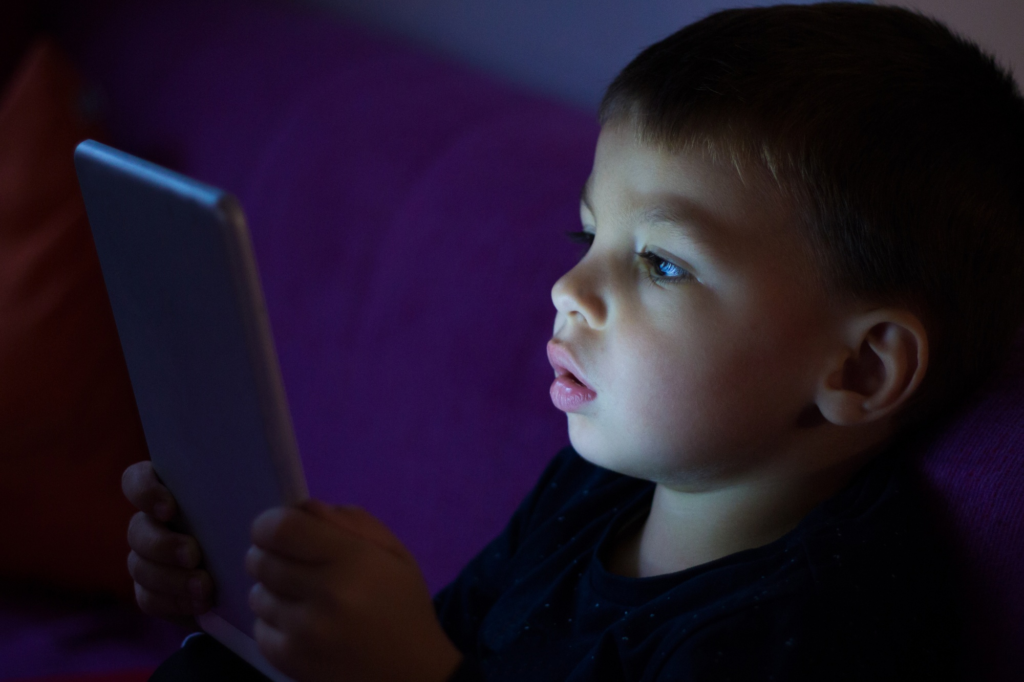An ‘iPad kid’ is a term used for children from Generation Alpha (those born after 2010), who are highly reliant on screens for entertainment, learning, and comfort. The phenomenon has caused worry that excessive screen and device use will have long-term health effects on our brains. Digital technology is essentially beneficial because it provides education and connection, and yet can be harmful if there are no sufficient limits.
What Makes a Child an iPad Kid?
Often, an iPad kid will be defined as one who cannot function without their device and has a difficult time switching to non-digital activities. First coined by Gen Z on TikTok, the term quickly went viral on social media as users made fun of the tendency of some millennial parents to placate disruptive behavior with an iPad. However, the discussion extends beyond humor. iPad kids reflect a larger societal challenge: how is the amount of screen time accompanied by healthy development?
Why Does Excessive Screen Time Matter?
Study suggests overuse of digital devices can adversely affect a child’s cognitive, social, and emotional development. A 2023 study out of Cureus found correlations between excessive screen time and executive functioning, sensorimotor development, and academic performance. Lower cognitive ability as an adult is also associated with early screen exposure.
Please follow us on Facebook and Twitter.
Children who spend more than two hours a day on screens, according to Psychologist Dr. Joseph McGuire at Johns Hopkins Children’s Center, may also have poor attention spans and even poor emotional regulation. Additionally, research reveals that not monitoring the screen can interrupt sleep patterns, as well as mood cycles, and place an individual at risk of obesity and immunity-related problems.

Are Screens All Bad?
It is not all doom and gloom. Not all screen time is bad, says the American Academy of Pediatrics (AAP). Content that delivers quality, such as educational apps, video chats, or interactive games, can encourage learning and social interaction. Co-viewing (adults watching and interacting with children during screen time) is recommended as a form of digital interaction since children appear to benefit most from these experiences with adults present.
The good news was that a 2022 study published in the Journal of the American Academy of Child & Adolescent Psychiatry found that kids who saw screens one to two hours a day were healthier socially and emotionally than kids who spent little to no time on screens. But the benefits dwindle rapidly with overuse, making moderation a crucial part.
Setting Healthy Screen Time Limits
Here are practical tips for parents to manage screen time effectively:
- Use Screen Time as a Tool, Not a Crutch: Never pacify children with iPads when they misbehave. But letting that reward the bad behavior by letting kids watch screen time can further reinforce unwanted patterns.
- Introduce Alternative Activities: Recommend non-digital activities like reading, puzzles, or outdoor play. Screen time gradually decreases encouraging children to switch to alternative forms of entertainment.
- Create Clear Rules: Make a set of these screen-use rules as household rules. For example not looking at any screens during meals, or before bedtime. These rules should also include children and parents.
- Focus on Educational Content: Take a look at your app choice and choose ones that promote learning, creativity or physical activity. Whenever watching with your child, please make sure to co-view as much as you can to encourage interaction and understanding.
- Model Healthy Screen Use: Adults teach children by what they do, not what they say. The string example that children follow is set by reducing their own screen time.
The Future of iPad Kids
The iPad kid phenomenon raises an important question: What kind of adults are these children going to be? The habits of the screen are deeply engrained from childhood, with fear that the next generation will not be able to manage attention, emotional regulation, and social skills. Growing up in contact with technology may enable Generation Alpha to accommodate a digital world better, on the flip side.

The real solution is balance. Dr. McGuire says parents should not feel bad about screen time and should instead distinguish between screen use and a constructive sense of boundaries and parental involvement. In addition, he reminds us that not all screen time is bad and that we need to know what children are exposed to because you do not know everything that is on.
End Note
In today’s tech-empowered world of digital occurrences, it can be nerve-wracking to oversee the lives of children amid their digital lives. Screens can be useful for learning, but if too much is used, it can get in the way. The secret is moderation, but encouraging children to be digital without forgetting about the real world. But, iPad kids are a result of modern parenting and curved social norms. Parents can make sure their kids traverse through this digital era with the knowledge that will make them responsible adults living in the cyber or offline world.






